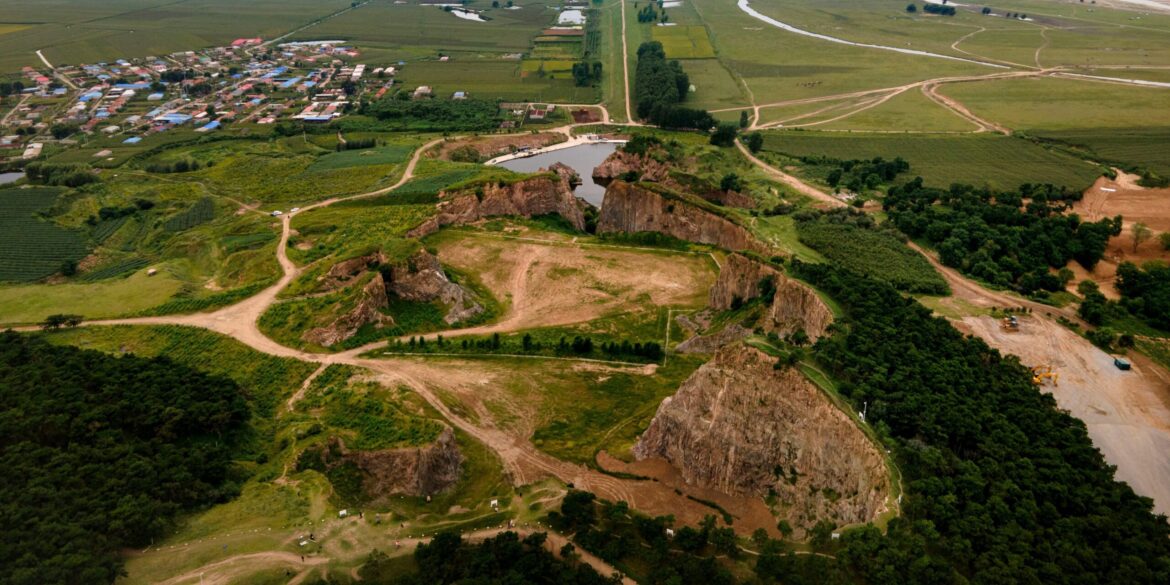Amid growing geopolitical tensions and efforts to fortify domestic supply chains, Oklahoma is fast emerging as the United States’ next frontier for critical mineral processing. A June 18 Reuters report highlights the state’s aggressive push to position itself at the center of the U.S. strategy to reduce dependence on Chinese-controlled mineral markets. Through a mix of private investment, federal incentives, and state-level support, Oklahoma is becoming a pivotal node in America’s clean energy and national security infrastructure.
At the heart of this transformation is Westwin Elements, which operates the country’s only commercial-scale nickel refinery. Based in Lawton, the facility is expanding with plans to process up to 34,000 tons of nickel annually by 2030—enough to meet 10% of projected U.S. demand. This growth aligns with national objectives to support the electric vehicle (EV) industry, defense manufacturing, and grid modernization.
Expanding the Critical-Mineral Ecosystem
In addition to nickel, Oklahoma is diversifying into other key mineral processes:
- Stardust Power is constructing a lithium refinery in Muskogee, a project that would help address a global shortage of battery-grade lithium hydroxide.
- USA Rare Earth is developing rare-earth magnet production in Stillwater—vital for both EV motors and military hardware.
- Green Li-ion and other companies are establishing e-waste recovery and battery recycling operations, further anchoring the state’s status in the circular economy.
These initiatives are especially notable because Oklahoma lacks significant mining deposits of these minerals. Instead, the state is building its reputation as a processing hub, capable of refining imported or recycled materials and converting them into high-value industrial inputs.
Why Oklahoma?
Oklahoma’s rise in the critical minerals sector is rooted in a blend of logistical, regulatory, and political advantages. Its centralized location offers proximity to major transportation networks, including railways, interstate highways, and the Port of Catoosa—an inland shipping facility that enables access to global markets.
Equally important is the state’s business-friendly climate. Governor Kevin Stitt, a vocal proponent of energy and industrial development, has aggressively courted foreign and domestic firms, traveling to East Asia to pitch Oklahoma’s assets. The state has also streamlined permitting processes, embraced renewable energy to power industrial operations, and offered tax incentives to attract investors.
“Our goal is to make Oklahoma a one-stop-shop for the critical materials our country needs,” said Stitt in a recent address. “We’re creating jobs, strengthening our national security, and leading in clean-tech manufacturing—all at once.”
Federal Support and Legislative Momentum
The Biden and Trump administrations have both recognized the importance of securing critical mineral supply chains. Recent federal production tax credits for battery materials, along with proposed legislation to stimulate domestic rare-earth magnet production, are accelerating Oklahoma’s ascent.
The Department of Defense and Department of Energy have also shown interest in partnering with Oklahoma-based firms, particularly those aligned with defense supply chains. Westwin’s nickel refinery is reportedly in talks for a Pentagon-backed offtake agreement, further solidifying its strategic importance.
However, national consistency in regulation remains a challenge. Some companies, especially in the lithium space, have expressed concerns over fragmented permitting standards across states, warning that it could delay investment timelines.
Challenges on the Road Ahead
Despite strong momentum, Oklahoma faces several headwinds:
- Lack of domestic raw materials: Without nearby mining operations, the state is dependent on imports and recycled materials.
- Workforce development: While Oklahoma’s energy background provides a skilled labor base, tech-centric industries such as rare-earth magnet manufacturing require additional training and education investment.
- Competition from other states: With companies like Panasonic and Tesla choosing to build major battery facilities in Nevada and Texas, Oklahoma must continue to differentiate itself in a competitive market.
Moreover, the state’s public education rankings—48th nationally—raise concerns about its long-term capacity to supply the skilled workforce these advanced industries will demand.
Strategic Importance for the U.S.
As geopolitical pressures mount and Washington looks to “friendshore” supply chains away from China, Oklahoma’s success could serve as a blueprint for other resource-light but infrastructure-rich states. The state’s ability to process, rather than extract, materials allows it to complement mining-rich states like Nevada or California while filling key gaps in the domestic industrial ecosystem.
For the U.S., strengthening mineral independence is no longer just an economic imperative—it’s a national security priority. And in that mission, Oklahoma is carving out a central role.

